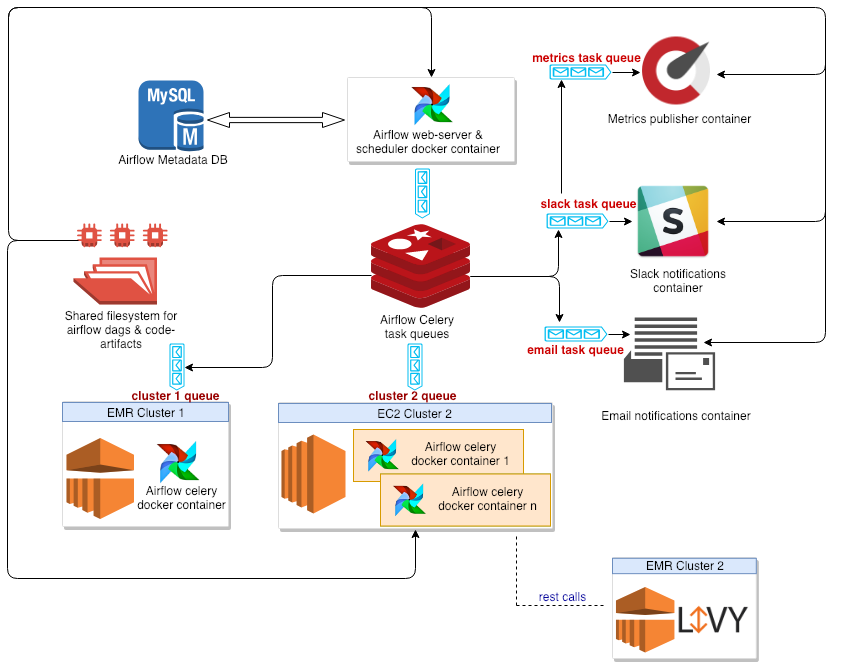

- #Triggerdagrunoperator airflow 2.0 example how to#
- #Triggerdagrunoperator airflow 2.0 example manual#
- #Triggerdagrunoperator airflow 2.0 example Patch#
- #Triggerdagrunoperator airflow 2.0 example full#
- #Triggerdagrunoperator airflow 2.0 example code#
# tasks, so we need extra status checkers to make sure that doesn't happen. # The short circuit skip will skip the fail status for all downstream Short_circuit = get_build_short_circuit_skip_task(dag)
#Triggerdagrunoperator airflow 2.0 example full#
# Always add the build task for a full runīuild = get_docker_build_task(dag, image_name) """Return a DAG that sequentially runs all other relevant DAGs""" """Return a BashOperator that only runs trivially when all upstream tasks succeed"""
#Triggerdagrunoperator airflow 2.0 example Patch#
# We change to "all_done" which means that when the upstream task is done, regardlessĮxecution_date="", # Added this param to patch the problem, without it, the external link doesn't link properlyĭef get_fail_if_task(dag: DAG, fail_condition: str = "all_failed") -> BashOperator: # The default trigger rule is "all_success": only run this task if previous ones all succeeded """Return a TriggerDagRunOperator for triggering other dags""" Python_callable=is_worker_build_succeeded,ĭef get_trigger_dag_run_and_wait_task(dag: DAG, dag_id: str) -> TriggerDagRunOperator: Return kwargs.get_task_instance(".-docker-build").state = State.SUCCESS # Check if the docker build worker task failedĭef is_worker_build_succeeded(**kwargs: Any) -> bool: """Return a ShortCircuitOperator that sets all following tasks to skip if worker build fails""" Resources=get_docker_build_resource_requirements(),ĭef get_build_short_circuit_skip_task(dag: DAG) -> ShortCircuitOperator: # Improve completion time of docker build
#Triggerdagrunoperator airflow 2.0 example code#
#Triggerdagrunoperator airflow 2.0 example how to#
How to reproduceĬreate a DAG with a TriggerDagRunOperator that triggers another DAG. At least this would show the latest run, and it will include in the dropdown the triggered run. If this is not feasible, it should at least point to the Triggered DAG page with no execution date constraints. The Triggered DAG should point to the execution date of the triggered dag, not the triggerING DAG.
#Triggerdagrunoperator airflow 2.0 example manual#
It links to the DAG page but never to the right instance without some manual tampering after clicking on the link. This means that the external link is always guaranteed to not link to the right DAG run (and not even show it as an option until you manually change the execution date filter in the new page). The problem is, the link currently includes a parameter for restricting to execution dates EARLIER than the execution date of the triggering DAG itself. The TriggerDagRunOperator embeds an external link that links to the DAG that's being triggered. Using base Docker image astronomerinc/ap-airflow:2.0.2-2-buster.

The usage of TriggerDagRunOperator is quite simple.Debian Versions of Apache Airflow Providers Perhaps, most of the time, the TriggerDagRunOperator is just overkill. Still, all of those ideas a little bit exaggerated and overstretched. For example, when the input data contains some values. The next idea I had was extracting an expansive computation that does not need to run every time to a separate DAG and trigger it only when necessary. On the other hand, if I had a few DAGs that require the same compensation actions in case of failures, I could extract the common code to a separate DAG and add only the BranchPythonOperator and the TriggerDagRunOperator to all of the DAGs that must fix something in a case of a failure. I could put all of the compensation tasks in the other code branch and not bother using the trigger operator and defining a separate DAG. However, that does not make any sense either. In the other branch, we can trigger another DAG using the trigger operator. We can use the BranchPythonOperator to define two code execution paths, choose the first one during regular operation, and the other path in case of an error. The next idea was using it to trigger a compensation action in case of a DAG failure. There is a concept of SubDAGs in Airflow, so extracting a part of the DAG to another and triggering it using the TriggerDagRunOperator does not look like a correct usage. I wondered how to use the TriggerDagRunOperator operator since I learned that it exists. This article is a part of my "100 data engineering tutorials in 100 days" challenge.


 0 kommentar(er)
0 kommentar(er)
